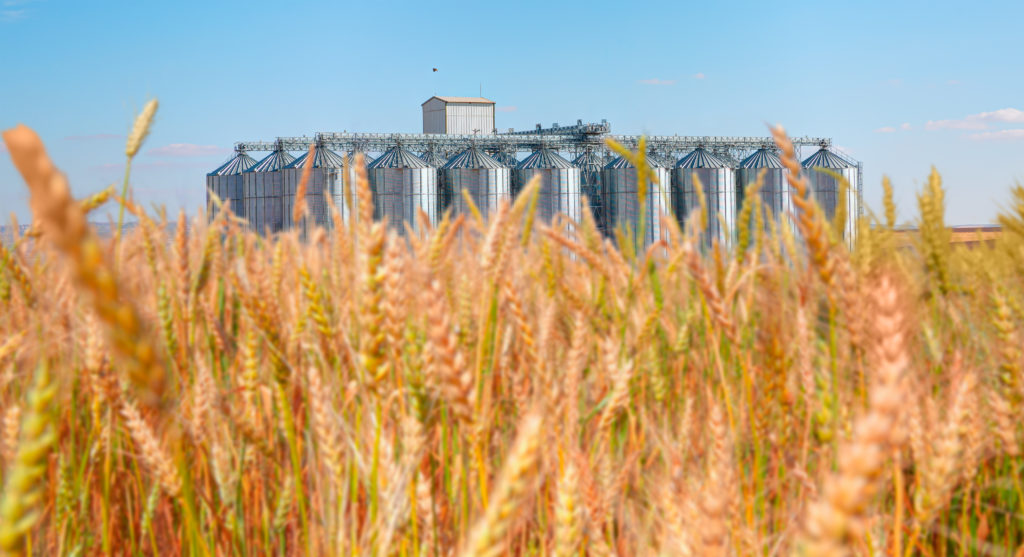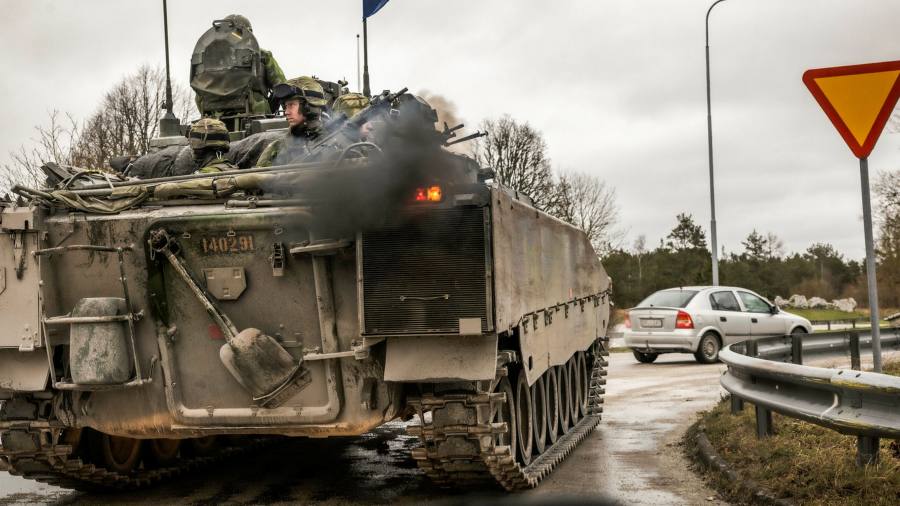The Ukraine Grain Agreement, officially known as the Black Sea Grain Initiative, is a joint agreement between Russia, Ukraine and Türkiye that promises a safe Black Sea corridor for merchant ships to export grain from Ukraine under United Nations supervision. When the deal was signed UN Secretary-General António Guterres hailed it as “a beacon of hope” in Istanbul on July 22. This so-called beacon turned off its light on October 29 in Russia suspended his engagement after accusing Ukraine of a drone attack on his ships of the Black Sea Fleet. Although Russia rejoined the deal days later and has since agreed to it with Ukraine renew The deal, the possibility of a future exit remains like a haze. For those who never really believed the deal was such a bright beacon, Russia’s suspension of the deal in October came as less of a surprise. The Baltic countries – Lithuania, Latvia and Estonia – have a long time warned about the risks of cooperation with Russia. While the grain deal provides an argument for cooperation with Russia – albeit marked by potential failure – the alarm bells ringing by the Baltic states could actually force Russia to better honor such agreements.
Public discussions and negotiations on the grain deal took place in May amid world concern over global food insecurity, compounded by Russia blockade of Ukrainian ports. Ukraine is a major global exporter of wheat, corn and sunflower oil and supplies 40 percent of the World Food Program’s wheat stocks, for example. While several plans to export grain from Ukrainian ports were proposed, the agreed deal was brokered by Türkiye and the UN. It called on Ukraine to demine its ports and Russia to ensure the safety of commercial grain ships. At the time, Lithuanian Foreign Minister Gabrielius Landsbergis proposed a plan that would have sidelined Russia instead. Landsbergis called on the West to supply naval escort Protection for Ukraine from exporting its own grain when he met and was supported by then British Foreign Secretary Liz Truss. Such a plan would have required Ukraine’s western partners to offer naval forces, but would have remained a non-military humanitarian mission. Russia was not considered an actor at all in Landsbergis’ plan; In fact, after speaking to Landsbergis, Truss said that supplying Ukraine with long-range weapons was necessary to protect its ports from Russian attacks. The claim that Russia should not be a partner has been consistent in Lithuania’s diplomatic stance.
After Russia announced the suspension of the existing grain agreement in October, Landsberg is back at it called for the West to be suspicious of Russia: “Judging by past performance and knowing that he is willing to weaponize hunger, it seems likely that Putin will once again attempt to blackmail the world by using this Winter blocked the grain of Ukraine. We simply cannot trust that the occupier who steals the Ukrainian grain will be honest when negotiating the export of the Ukrainian grain.” Landsbergis, a leading political figure in Lithuania’s centre-right Patriotic Union, has consistently been at the forefront of the West Russian confrontation.
Estonia also rang the alarm bells against cooperation with Russia. Aligned with Lithuania’s perspective, Estonian President Alar Karis supports Mr. Landsbergis’ naval coalition plan in May. Prime Minister Kaja Kallas has that too been tight to Russia, saying only a military victory – not a diplomatic one – should end the war. Like Lithuania, Estonia is skeptical about the negotiated agreement. Just two days after the grain deal was signed, both top Estonian diplomat Urmas Reinsalu and Defense Minister Hanno Pevkur warned that the deal could pose a potential threat. Both politicians doubted Russia’s complacency and concern that the West harbors “false hopes” of reaching peace through diplomatic channels. Their concerns were not unfounded, and Russia’s temporary withdrawal from the deal confirmed their concerns, although it may not be so clear that achieving peace through diplomatic cooperation with Russia is impossible or unrealistic.
Latvia took the same stance when parliament declared Russia a state sponsor of terrorism, citing, among other things, Russia’s missile attack on the port of Odessa a day after the grain deal was signed. MPs sentenced Russia’s disregard of its commitments to stabilize global food security. Latvian Foreign Minister Edgars Rinkēvičs has too warned that it is risky to involve the Kremlin in diplomacy. While saying that the international community should support negotiations if both Kyiv and Moscow agreed, Rinkēvičs added: “But at the same time, signing an agreement is a half-measure and does not involve strict control over its implementation, then I do.” no more illusions that the Russian Federation would comply.” All three Baltic states are critical of cooperation with Russia and extremely skeptical of Russian compliance. They all questioned the effectiveness of the UN-brokered grain deal and warned that Russia would not comply. These warnings still have pragmatic value.
Landsbergi’s plan offered a solution that didn’t require Russia’s involvement — not an ideal scenario for a Kremlin afraid of being sidelined. One of the main reasons Russia rejoined the current grain deal was because it was Türkiye, Ukraine and the UN be committed continue the agreement without Russia. If countries propose alternative plans that do not require Russia’s involvement, the risk of a withdrawal could force Russia to honor its international obligations. In this example, the Kremlin feared that the Black Sea Corridor would provide Ukraine with an additional opportunity to import arms and ammunition, so it called on the UN to inspect the grain ships as part of Russia’s requirement in the deal. Alternatively, if Western naval ships guarded a grain export corridor without Russia, the Kremlin would lose that influence.
The ultimate value of the Baltic states’ hawkish stance is not in refusing negotiations and cooperation with Russia. It can actually force Russia to behave better in negotiations and cooperation. Although the Baltic states are comparatively weak, their NATO and EU memberships can influence the strategies of these two powerful organizations towards Russia. This does not necessarily mean that the West will not continue negotiations with Russia; Diplomatic cooperation with Russia can still be necessary and constructive. The current Black Sea Grains Initiative has generally been quite effective, but Baltic pressure on Russia could still serve as an effective backup plan. As West is divided On the way of future interaction with Russia, the restrictive stance will continue to affect both sides of the negotiating table.
The views expressed in this article are solely those of the author and do not necessarily reflect the position of the Foreign Policy Research Institute, a nonpartisan organization that strives to publish well-argued, policy-oriented articles about American foreign policy and national security priorities.


/cloudfront-us-east-1.images.arcpublishing.com/gray/NZMXT34MRFHMFB3NVXT5EB3OIY.jpg)
/cloudfront-us-east-2.images.arcpublishing.com/reuters/OBTUZZXDENJYFP4UX2IZQMIYFU.jpg)
